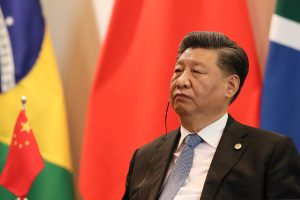Fifteen years into his tenure, having consolidated power and elevated his trusted leadership team into the highest echelons of the Communist Party and state, President Xi Jinping still faces a fundamental challenge: how to build a government that is not merely obedient, but capable – one that is incentivized to govern effectively, to take initiative, and to act in the long-term interest of the country.
It is relatively easy to instill fear. The anti-corruption campaigns that have marked Xi’s rule have unquestionably reshaped the political and business landscape. Officials across China have learned that missteps, real or perceived, can end careers or worse. The result is a bureaucracy that is increasingly cautious, reactive, and inward-facing.
But fear alone cannot govern a modern, complex state. It cannot deliver sound policy, drive innovation, or respond nimbly to the dynamic pressures facing the world’s second-largest economy. China may have deterred the corrupt, but they have also discouraged the competent.
Xi seems to recognize this tension. His recent messaging – especially the now-circulating critique known as the “three pats” – reflects both frustration and a grudging acknowledgment of the unintended consequences of the anti-corruption campaigns. In this sharply worded metaphor, he lambasts local officials who pat their heads before making rash decisions, pat their chests as they overpromise on delivery, and pat their backsides as they disengage or disappear when things go wrong.
The slogan is pointed, and the message clear: Beijing remains unsatisfied with the quality of local governance. And yet, this criticism follows close on the heels of a more conciliatory campaign – an effort to reassure officials that it’s okay to make honest mistakes, so long as their intent was aligned with Communist Party goals. The so-called “Three Differentiates” policy was designed to reintroduce initiative into a risk-averse bureaucracy. But when the choice is between bold leadership and potential personal ruin, most officials opt for cautious mediocrity.
These two narratives – one encouraging experimentation, the other doubling down on discipline – exist in uneasy tension. Add to that the continued use of central policy enforcement teams dispatched to the provinces to ensure that directives are being followed precisely as envisioned in Beijing. Yet at times, this approach causes outcomes to swing from inaction to the opposite extreme: in their efforts to demonstrate compliance and diligence, local officials may over-interpret and over-enforce policies, ultimately distorting the central government’s original intent and producing unintended consequences. This dynamic underscores Xi’s ongoing struggle to shift from a model of control to one of capability.
The implications of this inability to ensure quality and consistent policy enforcement are significant. Xi has long sought to create a professionalized, loyal, and highly effective governing class. His ambition is to construct a cadre of leaders who can not only implement policy but also chart concrete pathways to translate his top-level ideology into reality – leaders who can balance the economy with security, adapt to crises, foster innovation, and build a “modern socialist country” that rivals the West in both capacity and soft power.
But the endurance of the “three pats,” like the continued need for anti-corruption purges and inspection teams, suggests that China’s governance system remains stuck in transition. Without structural reform to align incentives toward good policy outcomes – and away from political loyalty – Xi’s vision may remain unrealized.
This matters for China’s future. Governing the world’s second-largest economy, managing an aging population, navigating global uncertainty, and transforming its massive bureaucracy requires more than slogans, purges, and pilot zones. It requires the nurturing of talent and systems that reward strategic judgment and strong execution.
In short, Xi can command obedience, but no one can compel excellence. The “three pats” reveal a leadership still frustrated by the balance between loyalty and performance. As Xi seeks to solidify his legacy, the question remains: can he truly build a bureaucracy capable of governing the complex machine he has so tightly centralized?

































